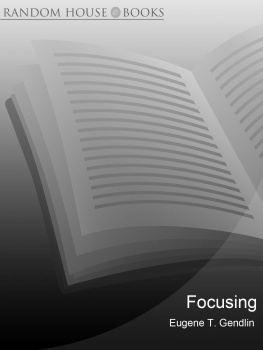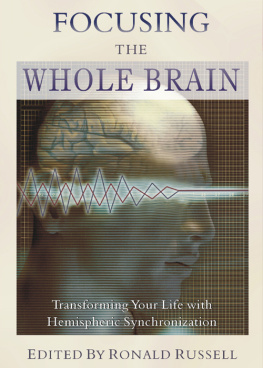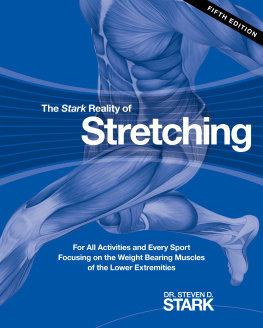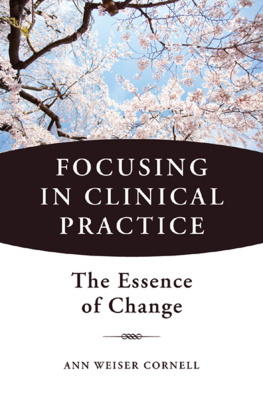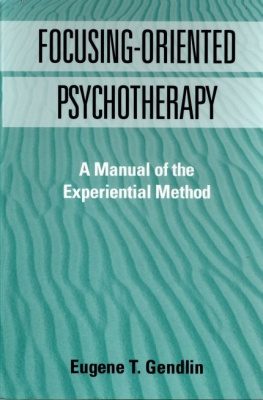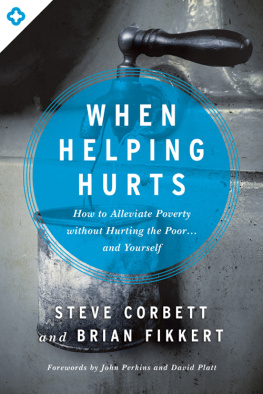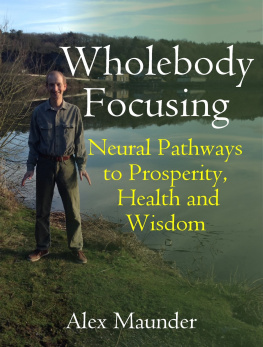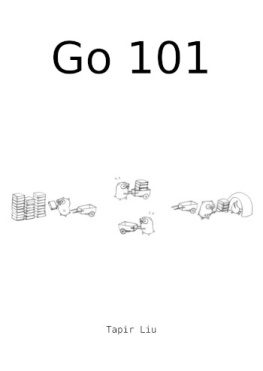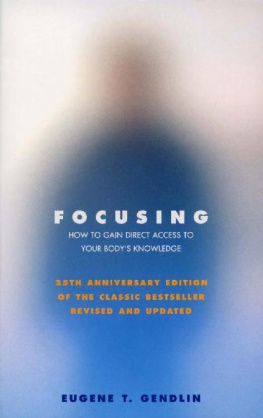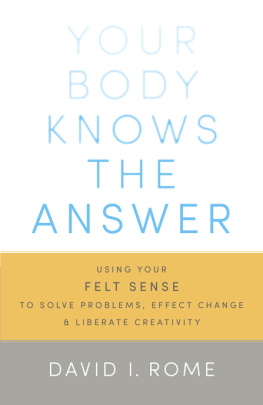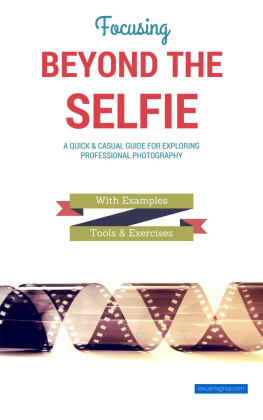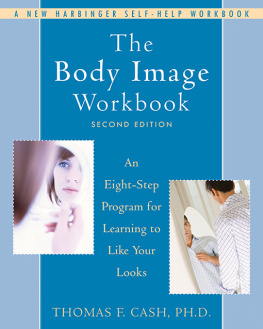This eBook is copyright material and must not be copied, reproduced, transferred, distributed, leased, licensed or publicly performed or used in any way except as specifically permitted in writing by the publishers, as allowed under the terms and conditions under which it was purchased or as strictly permitted by applicable copyright law. Any unauthorised distribution or use of this text may be a direct infringement of the authors and publishers rights and those responsible may be liable in law accordingly.
Epub ISBN: 9781407061597
Version 1.0
www.randomhouse.co.uk
I very much appreciate Max Gunthers
invaluable editorial help with this book.
3 5 7 9 10 8 6 4 2
Copyright 1978, 1981, 2003 by Eugene T. Gendlin, Ph.D.
Eugene T. Gendlin has asserted his right to be identified as the author
of this work in accordance with the Copyright, Designs
and Patents Act, 1988
All rights reserved. No part of this publication may be reproduced,
stored in a retrieval system, or transmitted in any form or by any means, electronic, mechanical, photocopying, recording or otherwise,
without the prior permission of the copyright owner.
First published in 1978 by Everest House.
Bantam Books revised edition published in 1981.
This updated edition published in 2003 by Rider,
an imprint of Ebury Press, Random House,
20 Vauxhall Bridge Road, London SW1V 2SA
www.randomhouse.co.uk
Random House Australia (Pty) Limited
20 Alfred Street, Milsons Point, Sydney,
New South Wales 2061, Australia
Random House New Zealand Limited
18 Poland Road, Glenfield,
Auckland 10, New Zealand
Random House South Africa (Pty) Limited
Endulini, 5A Jubilee Road,
Parktown 2193, South Africa
The Random House Group Limited Reg. No. 954009
Papers used by Rider are natural, recyclable products
made from wood grown in sustainable forests.
Printed and bound by Bookmarque Ltd., Croydon, Surrey
A CIP catalogue record for this book is available from
the British Library
ISBN 184413220X
ABOUT THE AUTHOR
Eugene T. Gendlin, Ph.D., University of Chicago, has been honoured three times by the American Psychological Association for his development of experimental psychotherapy. He received the first Distinguished Professional Psychologist of the Year award from the Clinical Division and an award from the Philosophical Psychology Division; he and the Focusing Institute received an award from the Humanistic Division in 2000. He was the founder and editor for many years of the Clinical Division journal Psychotherapy: Theory, Research and Practice. His book Focusing has sold over 400,000 copies and is translated into twelve languages. His other books include Let Your Body Interpret Your Dreams, Focusing-Oriented Psychotherapy, Experiencing and the Creation of Meaning, Language Beyond Post-Modernism: Saying and Thinking in Gendlins Philosophy (edited by David Levin). He has published many articles. He is internationally recognized as a major American philosopher and psychologist. A complete bibliography is available at www.focusing.org.
part one
Unlocking
the Wisdom
of Your Body
Footnotes
To return to the corresponding text, click on the asterisk and reference number
Chapter Three
. Ward Halstead, my colleague at the University of Chicago, spent a lifetime working on biological intelligence. He devised many tests to measure bodily ways of discriminating different things: time, rhythms, spatial arrangements, interpersonal impressions, faces. When he read my book on felt sense he applied his term biological computer to it. The equivalent of hundreds of thousands of cognitive operations are done in a split second by the body.
Chapter Ten
Property of Changes, 5655 University Avenue, Chicago, Illinois, by Eugene Gendlin and Mary Hendricks, with the aid of Allan Rohlfs and others.
Chapter Eleven
The method of saying back was discovered by Carl Rogers, and training in its use is available in P.E.T. by Thomas Gordon.
The switch roles method was invented by Fritz Perls. Here it is done in a focusing way.
This reiteration method was developed by Garry Prouty.
Chapter Twelve
Changes was started by Kristin Glaser.
part two
FOCUSING
part three
PEOPLE
HELPING EACH
OTHER
part four
FOCUSING AND SOCIETY
SOCIETY
FOCUSINGREVISED AND UPDATED25TH ANNIVERSARY EDITIONEugene T. GendlinRIDERLONDON SYDNEY AUCKLAND JOHANNESBURG
one
The Inner Act
At the University of Chicago and elsewhere in the past fifteen years, a group of colleagues and I have been studying some questions that most psychotherapists dont like to ask out loud. Why doesnt therapy succeed more often? Why does it so often fail to make a real difference in peoples lives? In the rarer cases when it does succeed, what is it that those patients and therapists do? What is it that the majority fail to do?
Seeking answers, we studied many forms of therapy from classical approaches to recent ones. We analyzed literally thousands of therapistpatient sessions recorded on tape. Our series of studies has led to several findings, some very different from what we and most other professional therapists expected.
First, we found that the successful patientthe one who shows real and tangible change on psychological tests and in lifecan be picked out fairly easily from recorded therapy sessions. What these rare patients do in their therapy hours is different from the others. The difference is so easy to spot that, once we had defined it, we were able to explain it to inexperienced young undergraduates, and they too were able to sort out the successful patients from the others.
What is this crucial difference? We found that it is not the therapists techniquedifferences in methods of therapy seem to mean surprisingly little. Nor does the difference lie in what the patients talk about. The difference is in how they talk. And that is only an outward sign of the real difference: what the successful patients do inside themselves.
The purpose of this book is to tell you what they do and how you can do it. For this uncommon skill, this internal act, not only is useful in a psychotherapists office, it is a way of approaching any problem or situation.
We have taught this skill to large numbers of people not in therapy in subsequent years. Now that it seems anyone can learn it, I also want this book to be readable by anyone. The book is addressed to professionals, but not only to them. Therefore I am writing it simply and not in the technical manner of my philosophical and scientific publications.
The skill we have observed and defined is not only for problems. Among those who know it, it becomes an internal source that is consulted many times every day. I am using it right now, in the process of writing this book.
The skill I am about to teach you is called focusing.
It will enable you to find and change where your life is stuck, cramped, hemmed in, slowed down. And it will enable you to changeto live from a deeper place than just your thoughts and feelings.
One fact that disturbed us the most in those research studies was that patients who did the crucial thing inside themselves could be picked out in the first two therapy sessions. We found we could predict success or failure right from the start just by analyzing the early interviews. According to a careful statistical analysis, there was less than a thousand-to-one chance of getting the same finding accidentally.

